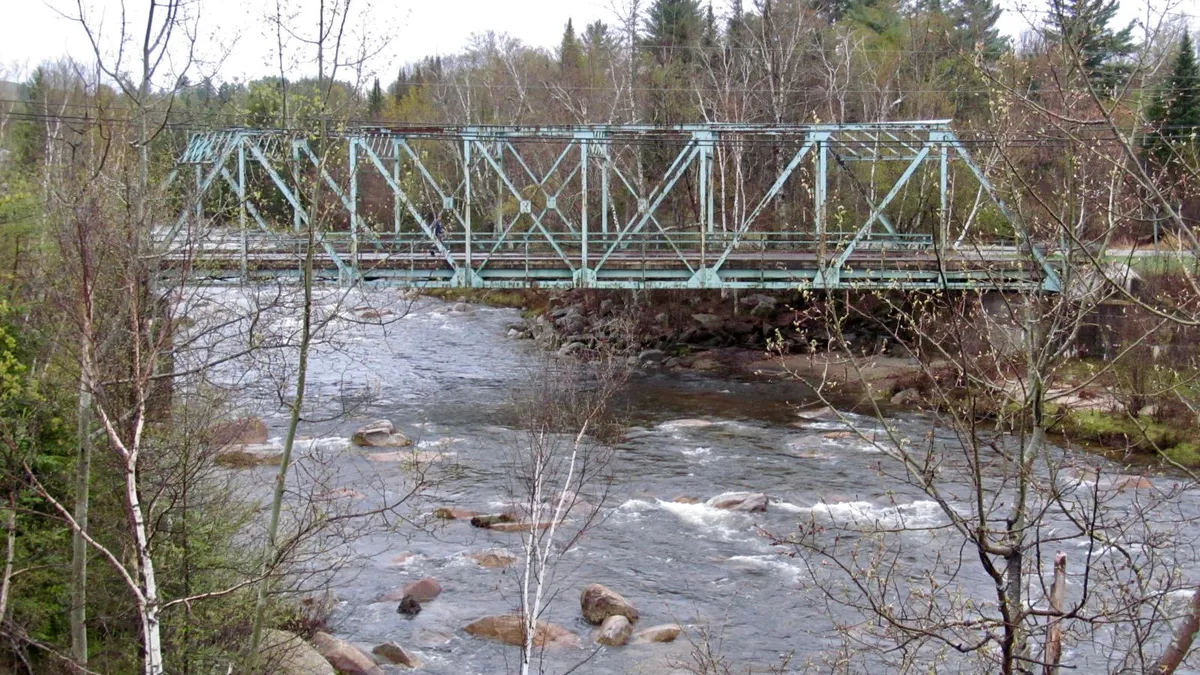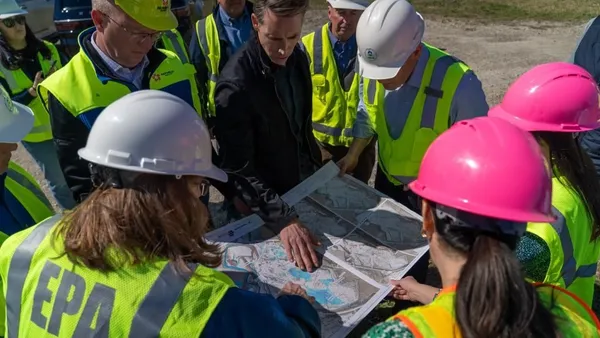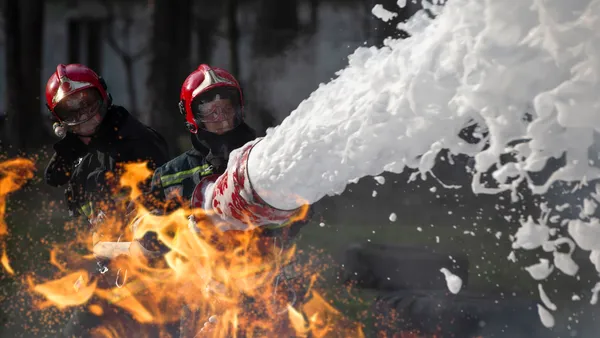Dive Brief:
- Casella Waste Systems recently received state approval for a vertical and lateral expansion of its North Country Environmental Services (NCES) solid waste landfill in Bethlehem, New Hampshire. The Stage VI permit modification, granted Oct. 9, will allow the company to expand the site's lifespan by another four to five years and increase its footprint by six acres.
- New Hampshire's Department of Environmental Services (DES) was originally set to deny Casella the expansion due to questions around public benefits during the planned timeframe. The new application would see the landfill operating into at least 2026, which DES Waste Management Division Director Michael Wimsatt said now overlaps with a period when the state will need more capacity.
- Environmental groups sued Casella in 2018 over allegations the site was discharging pollutants into the Ammonoosuc River in violation of the Clean Water Act. Casella Vice President Joe Fusco said the company "will be filing a motion for summary judgement (dismissal) likely within the next 30 days" in reference to that case.
Dive Insight:
Vermont-based Casella received expansion approval for landfills in Vermont and New York last year but ran into unexpected hurdles around the NCES expansion. In its fourth quarter earnings call earlier this year, Casella noted DES raised questions around the public benefits of the expansion and said the company had withdrawn its initial application in February.
At the time, CEO John Casella said the company planned to resubmit its application as soon as possible. He also noted the setback would result in ramping down volumes to the site this year. CFO Ned Coletta estimated they would be down $4.5 million as tonnage slowed. In Casella's subsequent first quarter earnings call, Coletta said the company's overall landfill tons were down 5.1% year-over-year due in part to volume reduction at the landfill.
Casella later engaged with DES about the basis for denial. Under the company's original proposal, the expansion would have extended the landfill's capacity for a shorter period of time and would not operate into a time period when the state would have the need for additional solid waste disposal space.
"We were in a position where it looked like we were going to need to deny it," said Wimsatt of DES. "Now it will operate approximately during one year when we calculated there was a capacity need."
Bethlehem voters previously shot down a much bigger 100-acre expansion of the landfill in 2018. Local environmental groups are concerned the new, smaller expansion approval will still be harmful to public health and the environment.
State regulators are scrutinizing the presence of per- and polyfluoroalkyl substances (PFAS) and other chemicals at the landfill, including suspected carcinogen 1,4 dioxane. New Hampshire is among states with strict new standards targeting PFAS in drinking water, and regulators are increasingly scrutinizing waste sites over the chemicals. Casella has previously confirmed efforts to limit certain items with high PFAS quantities at its landfills and said the company continues to monitor the issue.
Opponents say an expansion will only bring heightened risk of contamination.
"This is not a done deal," said Community Action Works New Hampshire State Director Shaina Kasper via email. "Bethlehem residents concerned about their health and the environment have fought off landfill expansions for years, and will continue to do so."
In a statement, John Casella welcomed the permit approval and said the expansion would make the company "well positioned to continue to meet the disposal and resource management needs of our customers and New Hampshire." He added the Northeast continues to face a disposal capacity shortage along with tightened municipal budgets due to COVID-19, and said the permit expansion will provide New Hampshire with support.
Also at issue is the ongoing 2018 lawsuit by Community Action Works (then the Toxics Action Center) and Conservation Law Foundation (CLF). In 2019, Casella filed a motion asking for a stay of litigation until the U.S. Supreme Court heard a separate case from Hawaii with implications for litigation on ground water impacts. That Supreme Court case was remanded this April to the U.S. Court of Appeals for the Ninth Circuit.
"We do not believe [that decision] resolves the issues presented in the New Hampshire Litigation," Casella wrote in its latest 10-Q filing, adding until the Circuit Court rules in the remanded case, the company intends "to continue to vigorously defend against the New Hampshire Litigation."
Opponents of the landfill expansion say they hope local officials will try to counter the decision. Casella is also facing pushback on its proposal for a new landfill in the region, which would have a much longer lifespan.














